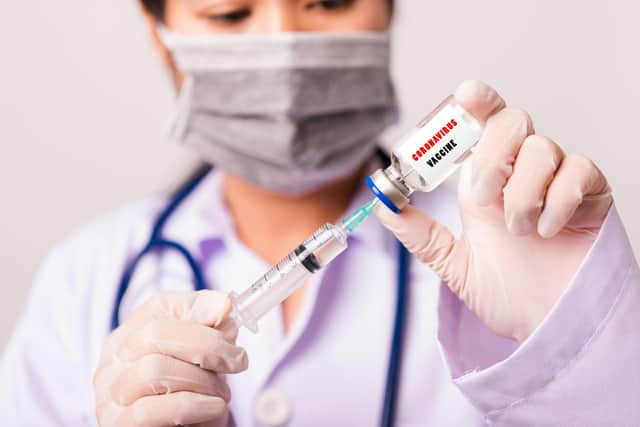Which is the best vaccine? Efficacy of Pfizer, AstraZeneca, Moderna, Novavax and other Covid jabs explained
The UK became the first western nation to approve the use of an effective Covid vaccine when regulators gave the green light to administer the Pfizer / BioNtech jab.
Following that "historic moment" on 2 December, the country has since approved the University of Oxford / AstraZeneca vaccine on 30 December and the Moderna jab on 8 January.
Advertisement
Hide AdAdvertisement
Hide AdThe Medicines and Healthcare products Regulatory Agency (MHRA) is assessing the Novavax jab, while a fifth - developed by Johnson and Johnson - is also pending approval in the UK.


But which vaccine is best, what are the side effects and when will I receive a jab?
Which vaccines are being used in the UK?
Shortly after the Pfizer jab was approved by the MHRA, the government began its vaccination programme on 8 December.
The Pfizer vaccine was rolled out to those most vulnerable to infection of coronavirus in the weeks leading up to Christmas before the Oxford jab joined the fight against the pandemic.
Both jabs are currently in use across the UK, as the country's leaders aim to offer a first vaccine dose to all over-50s and clinically vulnerable people by 15 April.
The Moderna vaccine, though approved, isn't likely to become available for use in the UK until April at the earliest due to it being manufactured in the US first.
How effective is each Covid vaccine?
All three vaccines approved in the UK have an efficacy rating of around 90%, or higher.
The Pfizer jab recorded the highest performance in late stage trials of 95% protection after two doses. It is 94% effective among those aged over 65 and the first dose provides 52% protection after 12 days.
Advertisement
Hide AdAdvertisement
Hide AdTwo doses of the Oxford vaccine provides 62% protection against the virus, though there was some data to suggest half a dose followed by a full dose could lead to 90% efficacy.
The MHRA recommends two full doses of the jab and concluded that the vaccine was up to 80% effective when the second dose was delayed by three months.
Moderna's jab is 92% effective against Covid, Novavax is between 86-89% effective and Johnson and Johnson's single dose vaccine is 66% effective, according to late trial data.
What are the side effects of having a Covid vaccine?
It is not uncommon for there to be some side effects after having been given a Covid vaccine, or any injection.
This can include pain at the site of the injection - where the needle entered the body - or feeling low on energy or flu-like.
Experts say, however, that most side effects are mild and should wear off after a few days.
The NHS lists a sore arm where the needle went in, feeling tired, a headache, feeling achy, feeling or eing sick as possible side effects after having a Covid vaccine.
Painkillers can be taken but if the effects persists, or a high temperature develops, then the NHS guidance is to call 111.
Advertisement
Hide AdAdvertisement
Hide AdHow do the UK approved vaccine compare to Russia's Sputnik V?
Interim trial data, published in The Lancet on 2 February, has revealed Russia's Sputnik V vaccine is 91.6% effective against symptomatic Covid-19.
The preliminary findings are based on data gathered from 19,866 participants - 75% of whom received two doses of the vaccine and 25% were given a placebo.
The study found that there were no serious adverse events associated with vaccination during the trial and that those who did experienced mild, flu-like symptoms or low energy.
Data only includes symptomatic Covid cases so far.
When will I get my Covid vaccine?
The phased rollout of the Covid vaccine for all adults over the age of 50 has been released by the UK government, with slight tweaks to the programme in each of the devolved nations.
People curious about finding out when they might receive a Covid jab can get an estimation via a vaccine calculator online developed by Polish start up company Omni.
After a few simple questions, the Omni calculator predicts where you are in the queue to receive a Covid vaccine in the UK based on the government's priority list.